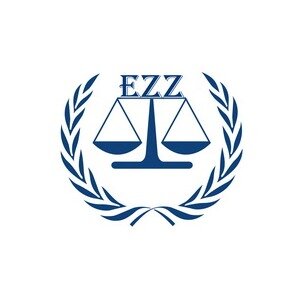Best Lawsuits & Disputes Lawyers in Abu Dhabi
Share your needs with us, get contacted by law firms.
Free. Takes 2 min.
List of the best lawyers in Abu Dhabi, United Arab Emirates

Saif Al Shamsi Advocates & Legal Consultants
30 minutes Free ConsultationUnited Arab Emirates Lawsuits & Disputes Legal Articles
Browse our 3 legal articles about Lawsuits & Disputes in United Arab Emirates written by expert lawyers.
- Handling Dubai Rental Disputes: A 2025 Guide for Landlords and Tenants
- Introduction: Navigating the 2025 Rental MarketUnderstanding Dubai's Regulatory StructureDubai Land Department (DLD)Real Estate Regulatory Agency (RERA)Rental Disputes Center (RDC)The Legal Framework: Laws No. 26 and 33The Tenancy Agreement and Ejari RegistrationMandatory Registration RequirementsAutomatic Renewal ProvisionsThe 2025 Smart Rental Index RevolutionFrom Static Calculator to Dynamic AI SystemStar Rating System and Property... Read more →
- How Do I Resolve a Commercial Contract Dispute in the UAE?
- Table of ContentsIntroduction: Navigating Business DisagreementsUnderstanding the Legal Framework in 2025A Step-by-Step Guide to Dispute ResolutionStep One: Review the Contract ThoroughlyStep Two: Attempt Negotiation and MediationStep Three: Arbitration in the UAEStep Four: Litigation in UAE CourtsCommon Causes of Commercial Contract DisputesThe Role of Free Zones in Dispute ResolutionPractical Tips for... Read more →
- A Practical Guide to Resolving Labor Disputes Under the 2025 UAE Laws
- Table of ContentsIntroduction: A New Era for Workplace Conflict ResolutionUnderstanding the UAE's Employment Law FrameworkCore Employee Rights and ProtectionsThe Revolutionary Two-Track Dispute Resolution SystemTrack One: MOHRE Adjudication for Claims ≤ AED 50,000Track Two: The Court System for Claims > AED 50,000The Step-by-Step Dispute Resolution ProcessPhase 1: Filing the Initial ComplaintPhase... Read more →
About Lawsuits & Disputes Law in Abu Dhabi, United Arab Emirates
The Abu Dhabi legal framework is influenced by both Islamic Sharia law and international laws. With regards to lawsuits and disputes, the Civil Procedures Law of the UAE governs civil cases, including commercial, civil and personal status, whereas Penal Procedures Law presides over criminal cases. Abu Dhabi courts are organized into three main stages: Court of First Instance, Court of Appeal and Court of Cassation, each with their various competencies and jurisdictions. Commercial disputes, if they cannot be resolved amicably, are often brought before the Abu Dhabi Commercial Court.
Why You May Need a Lawyer
Enlisting the help of a lawyer is crucial when a legal dispute arises. Common scenarios where you might require legal help include contractual disagreements, corporate conflicts, property disputes, or personal injury claims. A lawyer can provide you with advice, support, and representation necessary to ensure your rights are protected and your best interests are served during the legal process.
Local Laws Overview
Disputes in Abu Dhabi are typically resolved through litigation or arbitration. The primary legislation regulating civil and commercial disputes is the Civil Procedures Law. This law outlines the procedures for filing a case, the jurisdiction of courts, modes of evidence, and execution of judgments. Additionally, Federal Law No. 1 of 2007 lays out the necessary procedures for proceedings before the appellate courts. For contractual disputes, laws recognize freedom of contract and uphold the principle of pacta sunt servanda (agreements are to be kept).
Frequently Asked Questions
What is the timeframe for resolving a dispute?
The timeframe depends on the complexity of the dispute, whether it proceeds to trial or is resolved by a negotiated agreement and the court's schedule. On average, a dispute can take several months to a few years to be resolved.
Can foreign law be chosen as the governing law of a dispute?
While parties can choose the governing law for some agreements, in most cases involving public order and mandatory laws of the UAE, the UAE law will apply.
What if an agreement on dispute resolution method is not made?
If an agreement does not specify a dispute resolution method, parties are expected to proceed through UAE courts for the resolution.
Can decision of courts be appealed?
Yes, decisions made by the Court of First Instance can be appealed to the Court of Appeal and further to the Court of Cassation, until a verdict is delivered.
Are there alternative dispute resolution methods available?
Yes, there are alternative dispute resolution options available besides court proceedings. These include mediation, conciliation and arbitration, which are highly encouraged as they are less time consuming and cost-effective.
Additional Resources
Some of the key resources include the Abu Dhabi Judicial Department (ADJD), the UAE Ministry of Justice, and the Abu Dhabi Arbitration Centre which handle legal affairs in Abu Dhabi. They contain information about law procedures, legal news, and other pertinent information.
Next Steps
If you find yourself in need of legal assistance on matters of lawsuits and disputes in Abu Dhabi, it's crucial to seek legal advice from a licensed professional. Ensure that you provide your lawyer with all necessary documents and details about your case, to help them represent you effectively. Stay informed about your case's progress and maintain open communication with your lawyer throughout the process.
Lawzana helps you find the best lawyers and law firms in Abu Dhabi through a curated and pre-screened list of qualified legal professionals. Our platform offers rankings and detailed profiles of attorneys and law firms, allowing you to compare based on practice areas, including Lawsuits & Disputes, experience, and client feedback.
Each profile includes a description of the firm's areas of practice, client reviews, team members and partners, year of establishment, spoken languages, office locations, contact information, social media presence, and any published articles or resources. Most firms on our platform speak English and are experienced in both local and international legal matters.
Get a quote from top-rated law firms in Abu Dhabi, United Arab Emirates — quickly, securely, and without unnecessary hassle.
Disclaimer:
The information provided on this page is for general informational purposes only and does not constitute legal advice. While we strive to ensure the accuracy and relevance of the content, legal information may change over time, and interpretations of the law can vary. You should always consult with a qualified legal professional for advice specific to your situation.
We disclaim all liability for actions taken or not taken based on the content of this page. If you believe any information is incorrect or outdated, please contact us, and we will review and update it where appropriate.
Browse lawsuits & disputes law firms by service in Abu Dhabi, United Arab Emirates
Abu Dhabi, United Arab Emirates Attorneys in related practice areas.
















